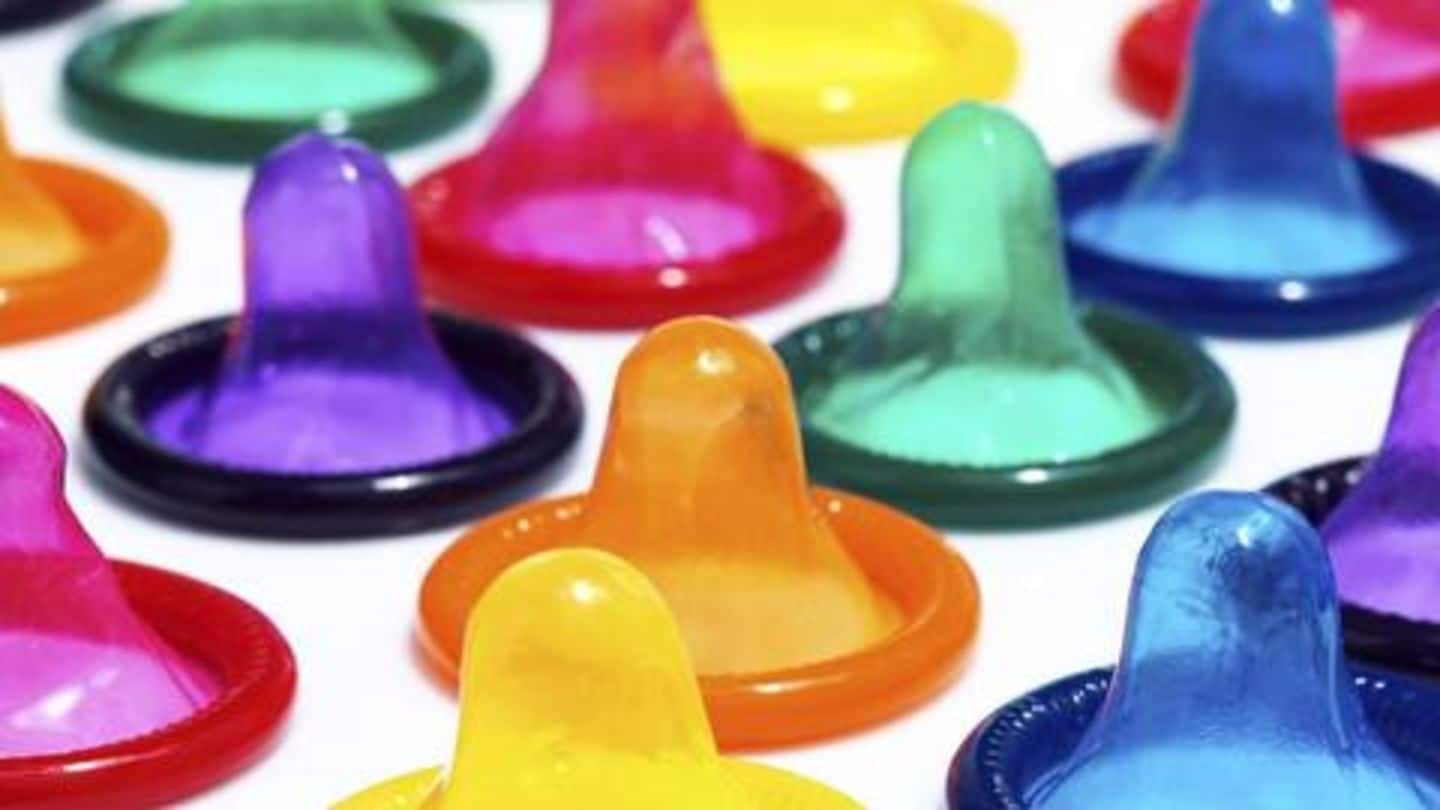
#HealthBytes: Disadvantages of using male condoms as contraceptive
What's the story
Condoms are the most commonly used mode of contraception today. This is so because they are handy, easy to store, widely available, and above all, effective (in most of the cases). They can help you stay away from unwanted pregnancy and dreadful STIs. However, they come with their own set of shortcomings. Here are the disadvantages of using condoms as contraceptive, and the alternatives.
Repetition
You have to use it every time you have sex
Unlike long-term methods of contraception, condoms need to be used each and every time you engage in sexual activity. If you use a condom only some times, or think about it when you are already halfway through the act, its effectiveness is bound to reduce. If you're looking for contraceptives that won't bother you time and again, try options like the implant or IUD.
Sizing issue
Using the wrong sized condom won't be that effective
Choosing the right size is a major dilemma while buying condoms. A bigger sized condom would be loose, and may fall off from the penis, and a smaller sized one might break during the act, resulting in unwanted pregnancy. One may use a regular measuring tape to figure the length and girth of their penis, and then choose the right condom size accordingly.
Breakage
Condoms may break during sexual acts
Although quite rarely, condoms do break. A condom might break during intercourse or other sexual activity, if it's not worn correctly; has surpassed the expiration date; is not your size, or is used with an oil-based lubricant. Dangerously enough, condom breakage may lead to unwanted pregnancy, or transmission of sexually transmitted infections (STIs). To stay safe, switch to other, more reliable modes of contraception.
Pain
Condoms might cause pain/discomfort during sex
At times, one or both the partners may not want to use a condom as it might lead to pain or discomfort during intercourse. Reasons could be latex allergies; presence of a compound called nonoxynol-9, and lack of proper lubrication. To deal with it, use (a lot of) natural lubrication during sex; try switching brands, or shifting to polyurethane/polyisoprene condoms.
Tips (1)
Tips for buying and storing the condom correctly
Follow these tips for buying and storing condoms correctly: Always use a fresh condom during every sexual act. Condoms come with a limited shelf-life, so make sure to check the expiry date before buying one. Store condoms in a cool and dry environment. Also, inspect the condom for any holes or cuts. Avoid using sharp objects on the condom.
Tips (2)
Tips for using the condom correctly
Put on the condom only once the penis is erect but before any contact with the partner's body has been made. Leave enough free space on the tip of the condom, to facilitate collection of semen post ejaculation. Do not unroll the condom down your penis, in one go. Also, be careful to never wear the condom inside out.
Other options
If condoms don't work for you, try these alternatives
If a (male) condom just doesn't work for you, explore other options. Talk to your partner about trying a female condom. These are effective and prevent STIs too. A birth-control pill is another highly effective (95-99% when used correctly) mode of contraception, but it can't protect you from STIs. Other popular options are the Implant, an Intrauterine Device (IUD), and the contraceptive diaphragm.